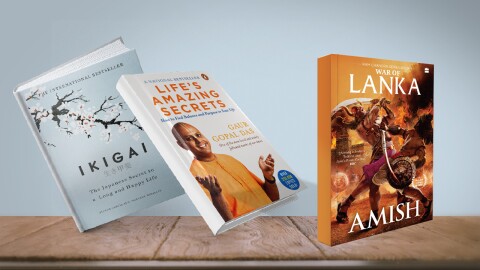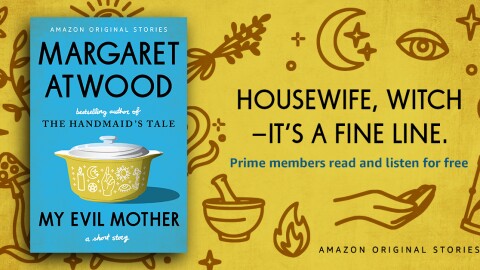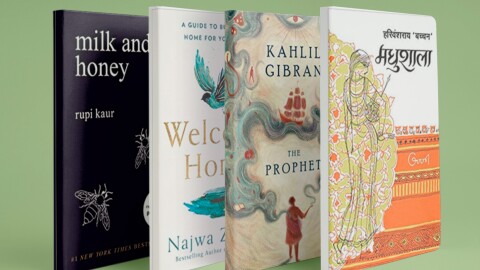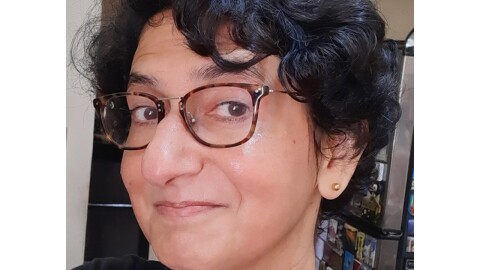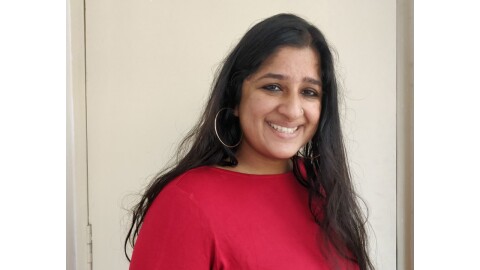A former Miss India, Gul Panag has been one of India’s most powerful opinion makers and thought leaders, frontline advocate and activist and regularly engages and facilitates dialogue and debates on critical issues whether it is gender, equality, justice, environment, fundamental rights, secularism, corruption and political accountability. Gul has a Masters in Political Science and her social and political activism has been recognised as one of the most influential voices on social media and we got to speak to her at the virtual Amazon India Fishbowl. Excerpts from the chat:
Gul, we heard you encouraged your father to write. Why was it important for you that he wrote his story in the book " Indian Army" and why did you really push him to go down the writer's route really?
I’ve always maintained that all of us see in our fathers and mothers role models and fortunately for my brother and I, we’ve never had to look outside our house to find a tall intellectual giant to sort of follow in the footsteps of. And I always thought that the candor with which he puts his views across and also the manner in which he simplifies that to make the lay person understand. I mean we’ve been given lessons in strategic affairs since I can remember.
A lot of the conversation around what’s happening in Eastern Ladakh, I remember with context as far back as 88-89 when my father was my age and a battalion commander commanding the first mechanized force that went to Ladakh.So there are so many things that even back then when I was like an 8-9 year old child. I remember any question I would ask him he would simplify and explain, without being patronizing and condescending, “Oh, this is not enough for you, you don’t need to understand what the warfare is”.
My father's writing isn’t such that it needs to be dumbed down for folks who are not from the background, but at the same time it's engaging and it tells the story of an army as we’ve seen it over the last 45 years while wearing uniform and then before that when he was himself an army child.
So, over the years in matters strategic, geopolitical, he had this ability to break it down and explain stuff to both Shebir and I, that’s my brother and I felt that he could do a lot more so we began pushing him to write more often and I think the first piece he wrote was a column for the Indian Express or I can’t remember now, I think it was quite a long time back and I think what caught the attention of people was the fact that military matters, complex matters were simplified and explained and nobody felt like they were an outsider. No one was made to feel that oh, we are not privy to strategic affairs or so we don’t understand and we shouldn’t be reading this. But in order to write you also need to develop a certain discipline and his discipline was so tight that he couldn’t find windows to write because he filled up his post-retirement time with everything he wanted to pursue and he is like, “I don’t have the time, I can’t write” and we just kept pushing him and pushing him and pushing him and I’m glad that he finally got writing and now he’s been writing a weekly column for over 5 years.
You've seen both sides of the table you've been part of an army life growing up. How does this book help civilians kind of understand the army? What are some of the takeaways from this book as a civilian that you think are important for all of us?
The beauty of this book is that it doesn’t assume that the reader is familiar with all that is being referred to. My father's writing isn’t such that it needs to be dumbed down for folks who are not from the background, but at the same time it's engaging and it tells the story of an army as we’ve seen it over the last 45 years while wearing uniform and then before that when he was himself an army child. Though it simplifies and breaks down what we took for granted as a way of life, it still remains interesting for those of us who are familiar with the life.
Also every piece in the book, every essay in the book, somewhere provokes you to think and it's not just always on large strategic matters but on basic matters like integrity, stuff that gets pushed into the backdrop as we sort of proceed with life. I mean these things sound really nice in school and in essay competitions and in debates, declamations but somewhere the pillars on which any society is constructed: integrity, propriety and a code of conduct, those just seem to disappear, especially now and every essay in the book actually catches upon those principles of life.
Gul, what are some of the biggest lessons that you’ve learnt you know and how they shaped you into the person that you are today.
Everyone of us who’s been born into the armed forces ecosystem has been molded by the environment that we grew up in and I think our choices in life and what we do with ourselves is a reflection of that. For me the key takeaways really have been that there is no substitute for integrity as an individual. I mean as a person you have to have integrity. In a place where you have to set an example you just have to do it by setting an example. You can’t ask people to do stuff that you wouldn’t do yourself, that you aren’t good at doing yourself.
I’m an entrepreneur, I run a bunch of things and I think it is really important that your team understands that you are out there doing everything not just with them shoulder to shoulder but you will demonstrate how it needs to be done without being difficult and condescending and patronizing and like ‘O I’ll show you!’. Leadership is not about trying to sort of tell people that you can do it better. Leadership is when you are with them shoulder to shoulder and then you stand and take difficult positions which otherwise people would find difficult to take. So you demonstrate your will, you demonstrate your enthusiasm, you demonstrate initiative. I think these are some of the larger value judgements that I’ve taken from the armed forces.
You are into fitness too...tell us how that love for fitness began? How important is a workout for you?
My love affair with fitness has been something that originated in the armed forces and has stayed with me since and I think it’s responsible for me being able to do a lot of the things that I do. So, when I was in my 20s I used to exercise for vanity but now I exercise purely for sanity because it gives me perspective, it gives me so much objectivity. It allows me to compartmentalize, it allows me to structure my day. All the things that bog me down I am able to solve during my workout whether it is a 15-20 min intense routine or a heavy duty one hour long run.
When I was in my 20s I used to exercise for vanity but now I exercise purely for sanity because it gives me perspective, it gives me so much objectivity.
So I think a lot of what has shaped me today has come from the armed forces and I’m proud to say that the more important things that really matter in life such as character, integrity, propriety, your devotion towards being the kind of person that you would want your child to grow up to be, constantly keep working towards perfecting that role model has sort of come from the army. You conduct yourself always cognizant of the fact that you could be somebody’s role model at any given point of time and even when my basal human trait which we all have feel like they might overpower me, I try and remain cognizant that you know I need to constantly be this one person who is a role model in my sphere of influence. I’m not talking from a social media perspective. I’m not talking from a celebrity perspective but in the limited sphere of influence that one has in one’s home because you know, as a parent your child is constantly watching what you do and it is a very difficult task but one’s gotta do it and that comes from the role model style of leadership which is so omnipresent in my father’s career and his writing.
What motivated you towards becoming an actor and you know how did you kind of go towards Bollywood and you know, kind of take up that as a career?
I think for me being an actor was a means to a much bigger end and it came across as low hanging fruit because back in the day when you were a Miss India everybody could offer a film. I chose certain kinds of films to be associated with and those films were of a certain kind and not the sort of song and dance routine films and, not that I have anything against those films but that was just not my cup of tea. I always saw this as a means to a bigger end and of course the bigger end is still at play.
Back in the day in the 90s and the early 2000s when you won the Miss India Pageant, it made a lot of sense for producers to already cast somebody who had a fair degree of recognizability and rather than cast an absolute newcomer, you’re obviously much cheaper than casting established actors and also it was very little to do with films back then. I mean I wish I could give a more deeper answer but really I saw it as a means to an end and in a bigger scheme of things to use that as a platform to do everything else that I wanted to do with my life.
Your role in the The Family Man...You are the Intelligence Officer who really gives the ‘Takkar’ to the Family Man. So what did you do to prepare for that role and be so strong in a kind of male-dominated serial.
Well, I spent about 38 years of my life preparing for that role to be honest. I sort of drew upon every single memory of mine growing up in the armed forces to make sure I had the right bearing to begin with because one of the most important things about Saloni’s character in Family Man was her bearing. I mean she had this intimidating presence that constantly made Manoj’s character uncomfortable. So I think one of those things that I stole away as a little girl was that you got to have a certain demeanor as an officer and I always harboured a wish to join the armed forces. There were no women in combat back then. There still aren’t women in combat.
Acting is all about observation and then storing away those observations and extracting them when you need to depict them.
Of course there wasn’t even the option to permanent commission back then and I had saved up all my desire of being an Army Officer and this is the closest I could get to be able to play a character like Saloni who is actually a Commanding Officer and is somebody Manoj reports to, literally a dream come true. I felt like I had been preparing my whole life for it but. On a more real note, it sort of came very naturally to me. I mean I was so familiar with the armed forces ecosystem that there was perhaps a civilian playing that part there would have been some preparation but so many things like the clipped manner in which she speaks, the way she gives orders, the way she conducts herself.
These are somethings that I have observed over years and years and years. So I guess I prepared a lot for it and no I didn’t really prepare for it, both answers work but it was just the sum total of my entire experience growing up as an army child and observing so many people like Saloni albeit men because there weren’t too many women to observe back then. But really it was a total of all the observations that I did as a child and as a young lady growing up and acting is all about observation and then storing away those observations and extracting them when you need to depict them.



